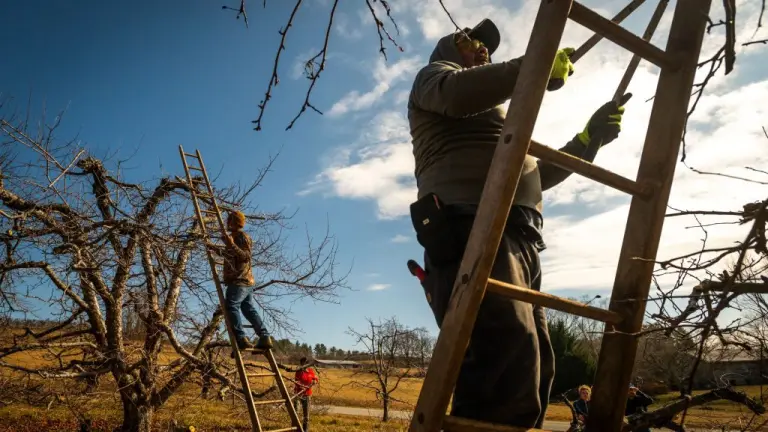
A National Intelligence Assessment of the security challenges presented by climate change, which Congress requested last year, has been completed, and the intelligence community has come to the same conclusion that many have before: Climate change poses a threat to national security.
 The report looks at the national security implications of climate change through 2030, and concludes that changing weather patterns could contribute to political instability, disputes over resources, and mass migration, National Intelligence Council chairman Thomas Fingar told a joint meeting of the House Intelligence Committee and the Select Committee on Energy Independence and Climate Change today.
The report looks at the national security implications of climate change through 2030, and concludes that changing weather patterns could contribute to political instability, disputes over resources, and mass migration, National Intelligence Council chairman Thomas Fingar told a joint meeting of the House Intelligence Committee and the Select Committee on Energy Independence and Climate Change today.
Congress was first briefed on the report last week; today’s hearing allowed the committee to question Fingar, Energy Department intelligence chief Rolf Mowatt-Larssen, and National Intelligence Council counsel Matthew Burrows and economics officer Karen Monaghan about the new report.
Fingar told the committees that their assessment, which used projections on climate change from the Intergovernmental Panel on Climate Change and U.S. government climatologists, found that water scarcity and decreased agricultural productivity could force migration, and that migration and resource scarcity “could cause or aggravate tensions between migrants and received populations.” Their report also finds that severe weather events could have significant economic costs, which could further destabilize affected regions.
“It would have wide-ranging implications for national security because it will aggravate existing problems,” said Fingar. The effects would be especially problematic in countries where governments are already unstable, Fingar added, with places like Sub-Saharan Africa, the Middle East, and Central and Southeast Asia being the most vulnerable to drought, flooding, extreme weather, and food shortages.
The 58-page report itself has been listed as a classified document, so it is not available to the public, a fact that representatives from both sides of the aisle criticized today. It was intended to be a declassified document, but the agencies involved maintain that elements included therein are too sensitive to make available to the public. Both Intelligence Committee member Darrell Issa (R-Calif.) and Select Committee Chair Ed Markey (D-Mass.) said they would issue requests to the appropriate agencies that the report be declassified.
The report is the result of a collaboration between the National Intelligence Council — which coordinates the work of 16 government intelligence agencies, including the Central Intelligence Agency, the Federal Bureau of Investigation, and the military intelligence arms — and government science programs like the National Oceanic and Atmospheric Agency, and the U.S. Climate Change Science Program.
Several Republican members of the committees raised questions as to the accuracy of the report’s projections, and suggested that the intelligence community should not have been tapped to work on this. “It’s a waste of time, a waste of resources for the intelligence committee to be working on this,” said Peter Hoekstra (R-Mich.), ranking member of the Intelligence Committee.
Asked the level of confidence he has in the assessment, Fingar said his confidence was “low to moderate,” which provided fuel for Republican ire over the assessment. But as NIC’s Burrows pointed out later in the panel, their findings “may in fact be an underestimate” of the effects of climate change.
Other Republican members expressed annoyance that the committees were not talking about how to ease energy prices. “Instead of taking this crucial action, Congress will today again talk about the global warming instead of the real threat of high gas prices and energy dependence,” said James Sensenbrenner Jr. (R-Wis.), ranking minority member of the Select Committee. Sensenbrenner also said that he has a “skeptical view” of the “entire issue” of climate change.
Fingar maintained that the report is based on the best available scientific evidence, as well as the best available intelligence estimates about potential hot zones. He noted that this is an issue where “intelligence” as he would normally define it isn’t particularly helpful. “We can’t steal mother nature’s intentions … we don’t have body of information comparable to that which is available in other situations.”
Former United Kingdom Foreign Minister Margaret Beckett, retired Admiral Paul Gaffney, and Army War College professor Kent Hughes Butts also testified in a second panel to the security threats posed by a warming climate. Also on that panel were Lee Lane of the American Enterprise Institute and Marlo Lewis of the Competitive Enterprise Institute, who argued that the impacts of climate change aren’t so bad, and that acting on it could possibly imperil U.S. economic and military strength.

